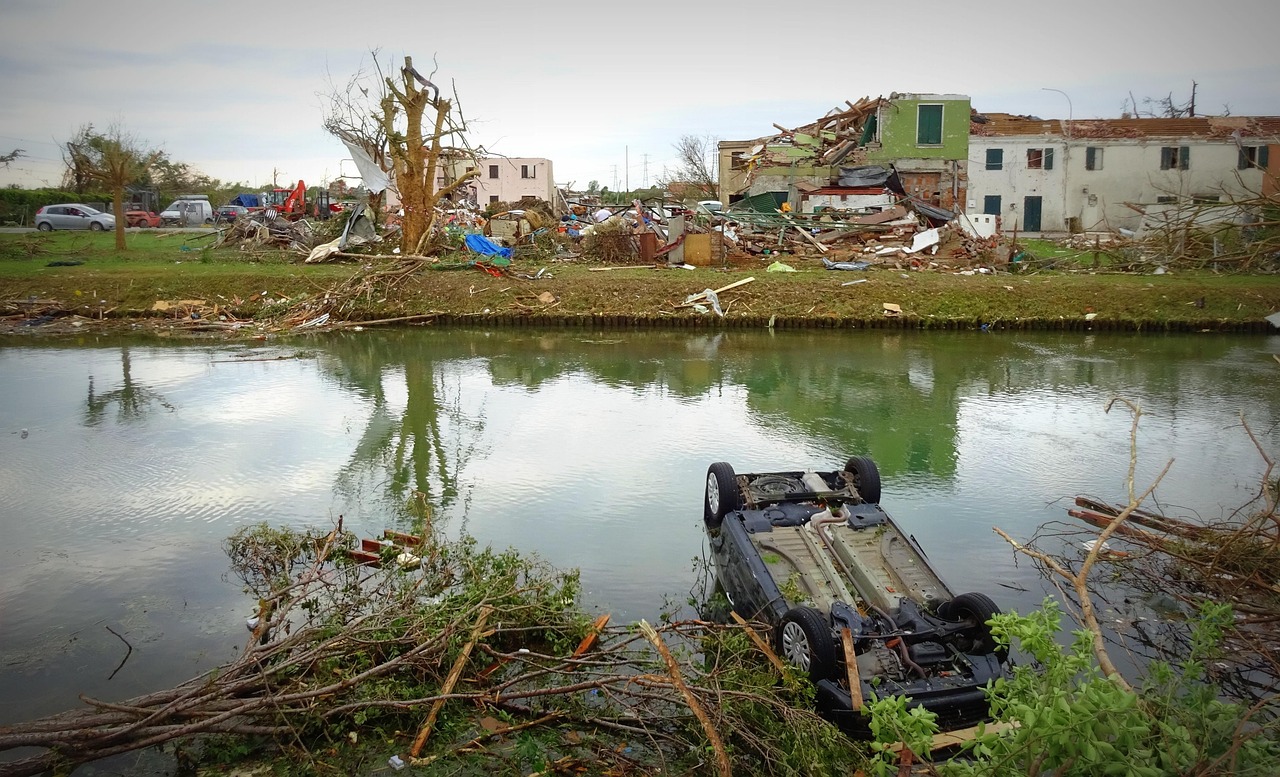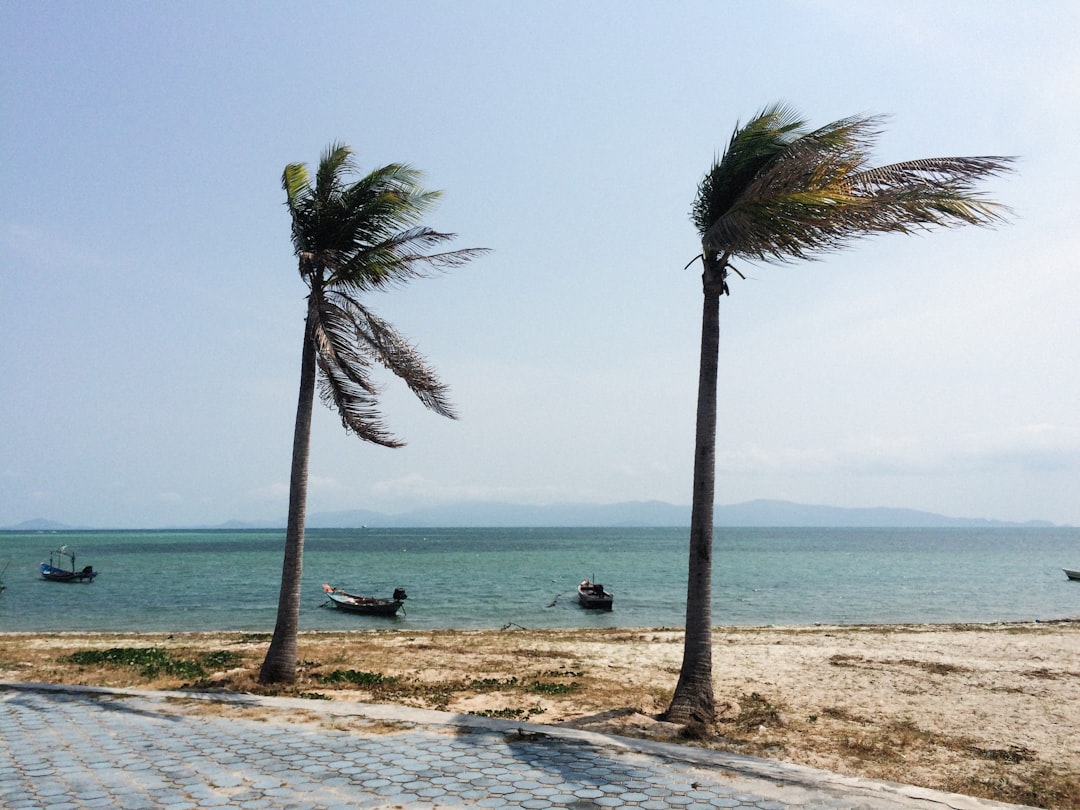This blog post serves as a comprehensive guide on hurricane insurance for 2025, detailing essential considerations for protecting your property against storm damage. It begins by explaining what hurricane insurance entails and clarifying whether standard home insurance policies cover hurricane-related damage. The article further distinguishes between hurricane and flood insurance, outlining the specific coverages each provides. To help homeowners understand financial implications it reviews the cost of hurricane insurance by state, highlighting trends and variances. Finally, readers will find practical steps on how to secure hurricane insurance, ensuring they are adequately protected during the storm season. Overall, this guide is a must-read for anyone living in hurricane-prone areas offering valuable insights into hurricane insurance and its importance.
What is Hurricane Insurance

Hurricane insurance is a specialized type of insurance designed to protect homeowners from the damages caused by hurricanes and tropical storms. This coverage typically includes protection against strong winds hail, and falling debris ensuring that homeowners can recover without facing dire financial consequences. It is essential to understand what hurricane insurance coverage entails especially for those living in hurricane-prone areas as standard home insurance policies may not offer adequate protection against these specific natural disasters.
Key Features of Hurricane Insurance
- Covers wind and storm damage to the structure of the home.
- Includes coverage for personal property and belongings affected by the hurricane.
- May provide additional living expenses if the home becomes uninhabitable.
- Offers protection against storm surge and flood risks depending on the policy.
- Allows for policy customization based on individual needs and risk factors.
- Typically includes a higher deductible specifically for hurricane-related claims.
- Renewal policies may vary, reflecting the ongoing risks associated with climate change.
Homeowners often wonder, “Does home insurance cover hurricane damage?. The answer largely depends on the specifics of the policy. Standard home insurance policies generally cover damage caused by wind and rain; however, many exclude or limit coverage for hurricanes requiring homeowners to purchase separate hurricane insurance. Understanding the distinctions between these policies is crucial to ensure complete financial protection before a hurricane strikes.
In addition to understanding hurricane insurance coverage, it is prudent for homeowners to familiarize themselves with the claims process and the potential limitations of their policies. Many insurance providers recommend consulting with an insurance expert when navigating these complex insurance options to identify the best coverage tailored to individual needs. This proactive approach will help homeowners safeguard their assets and stress levels in the event of a hurricane-related disaster.
Does Home Insurance Cover Hurricane Damage
Homeowners often wonder if their existing policies will protect them during a hurricane. The answer largely depends on the specifics of your home insurance policy. Standard home insurance typically covers damage from wind, but it often excludes specific storm-related damages particularly those caused by flooding. Therefore, it is essential to examine your policy closely to determine if it provides adequate protection against hurricane damage.
Many homeowners miss the fact that standard home insurance may only provide limited hurricane coverage. In general, it might cover structural damage from high winds such as those caused by hurricane gusts. However, if flooding occurs as a result of the storm, the damage may not be covered under a typical home insurance policy. This is where understanding the nuances of your policy becomes crucial.
Steps to Determine Coverage
- Review your current home insurance policy.
- Identify what types of damages are covered (wind vs. flood).
- Check if you have a separate flood insurance policy.
- Consult with your insurance agent for specific terms.
- Consider upgrading your policy for comprehensive hurricane protection.
- Research your state’s specific insurance regulations.
- Evaluate hurricane insurance cost to fit your budget.
In addition, many homeowners choose to invest in hurricane insurance to bridge these gaps. This type of insurance can cover a wide range of storm-related damages specifically those not included in standard policies. However, the hurricane insurance cost can vary significantly based on location, property value, and the range of coverage needed, making it vital for homeowners to budget accordingly.
Understanding Standard Home Insurance
Standard home insurance policies generally focus on specific perils like fire, theft, and wind damage, but they often have limitations when addressing natural disasters such as hurricanes. While they may cover structural repairs from wind-driven rain, they typically require a separate flood insurance policy for water damage resulting from storm surges. Homeowners should closely assess their policies to confirm these details ensuring adequate protection for hurricane-induced damages.
Additional Coverage Options
For comprehensive protection, homeowners may opt for additional coverage options. These can include endorsements or riders to their existing policies that specifically cover hurricane-related damages. Obtaining hurricane insurance not only provides peace of mind but also financial security when your home is threatened by these powerful storms. It’s essential to keep in mind that the pricing of such coverage can greatly vary, making homeowners increasingly aware of the need for adequate protection against diverse storm risks.
Hurricane vs Flood Insurance Coverage
When it comes to safeguarding your property from severe weather events understanding the differences between hurricane vs flood insurance is crucial. Hurricane insurance specifically addresses damages caused by hurricanes including wind and storm surge, whereas flood insurance typically covers damage stemming from rising water caused by excessive rainfall or other flooding situations. Before making a decision about coverage, it’s important to recognize that standard homeowner’s insurance policies often do not provide protection against either of these risks necessitating the purchase of separate insurance policies.
| Type of Coverage | What is Covered | Typical Exclusions |
|---|---|---|
| Hurricane Insurance | Wind damage, storm surge, debris removal | Flooding, non-hurricane related damage |
| Flood Insurance | Rising water damage, contents coverage | Flooding caused by hurricane storm surge |
| Homeowners Insurance | Structural damage, personal property | Hurricanes and flooding unless add-ons are included |
Considering the potential for severe devastation from storms many homeowners are left wondering how to adequately protect their properties. Here, it’s essential to assess your specific risks your locale’s propensity for hurricanes and flooding, and the overall cost of obtaining adequate coverage. A deeper understanding of hurricane insurance coverage alongside flood insurance options will enable homeowners to make informed decisions about their policies.
Differences Between Hurricane and Flood Insurance
- Coverage for wind damage vs. rising water damage
- Specific exclusions often found in each policy
- Geographic focus—hurricane risks are prevalent in coastal areas while flooding can occur anywhere
- Different insurance providers and policies may be necessary for each type of coverage
- Cost distinctions based on risk assessment and coverage limits
- Potential for combined policies but may have limitations
Understanding these distinctions strengthens your ability to take appropriate measures against these forces of nature. While hurricane insurance specifically protects against storm-related damages recognizing the importance of flood insurance is equally essential. The right combination of coverage allows homeowners to rest easier, knowing they have taken proactive steps against unpredictable weather patterns.
Key Differences Explained
The primary difference between hurricane and flood insurance lies within their respective scopes of coverage. While hurricane insurance is designed to protect against the specific perils associated with hurricanes such as high winds and structural damage from storm surges flood insurance specifically addresses damages caused by rising waters. In locations prone to hurricanes homeowners should consider securing both types of insurance to ensure comprehensive protection, as relying on one may leave significant gaps in coverage.
Hurricane Insurance Cost by State
The hurricane insurance cost can vary significantly from one state to another, largely influenced by factors such as geography, the history of hurricane activity, and local regulations. States like Florida, Texas and Louisiana typically experience higher premiums due to their vulnerability to hurricanes. For homeowners in these regions understanding the specific costs of hurricane insurance is crucial for adequate financial planning and risk management.
| State | Average Annual Premium ($) | Risk Level |
|---|---|---|
| Florida | 3,600 | High |
| Texas | 2,400 | High |
| Louisiana | 3,200 | High |
| North Carolina | 1,800 | Moderate |
In contrast, states such as North Carolina and South Carolina have moderate hurricane insurance costs, reflecting less frequent hurricane activity but still significant exposure. Homeowners often have the option to bundle hurricane coverage with their standard homeowners insurance, which might provide additional savings on premiums. However, the coverage limits and specific terms should be carefully reviewed to ensure that they meet personal needs.
Factors Influencing Cost
- Location of the property
- Historical storm activity in the area
- Home’s construction materials and age
- Proximity to the coastline
- Coverage limits and deductibles
- Local building codes
- Claims history of the property
Moreover, it’s essential for homeowners to understand the components that contribute to the overall cost of hurricane insurance. Factors such as the home’s construction materials age, and proximity to the coast play a substantial role. In regions with strict building codes and rigorous loss mitigation measures homeowners may find more favorable rates offering potential savings in their hurricane insurance costs.
How to Get Hurricane Insurance
Acquiring hurricane insurance coverage is a crucial step for homeowners in storm-prone areas. Understanding the specifics of policy options coverage limits and exclusions will help you make an informed decision. It is important to compare different offerings to ensure you select a plan that aligns with your personal needs and property risks.
Before diving into the process consider preparing necessary documentation and conducting an inventory of your possessions. This will not only facilitate the application process but also assist in accurately determining the coverage amount you will require. Research shows that properties with thorough documentation tend to receive faster claims processing.
Steps to Obtain Hurricane Insurance
- Assess Your Current Coverage: Review your existing home insurance policy to determine the level of hurricane protection currently offered.
- Research State Regulations: Understand the laws and requirements for hurricane insurance in your state to ensure compliance.
- Gather Necessary Documentation: Compile all relevant information, such as property details previous claims and inventory lists of your belongings.
- Compare Insurance Providers: Look for providers that offer comprehensive hurricane insurance coverage, comparing prices and policy features.
- Consult with an Insurance Agent: Seek expert advice from a qualified insurance agent who can guide you through the policy selection process.
- Submit Your Application: Once you’ve selected a policy, complete and submit your application to begin your coverage.
- Review Your Policy Annually: Make it a habit to reassess your insurance needs regularly, especially following major renovations or property value changes.
Taking these steps will aid you in specifying the right hurricane insurance coverage tailored to your requirements. Making well-informed choices can protect your home and belongings when facing unpredictable storms.






